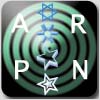|
Abstract: |
Hyperlipidemia is a metabolic
disorder of plasma lipids, triglycerides, cholesterol, low
density lipoprotein cholesterol (LDL-C) and high density
lipoprotein cholesterol (HDL-C). Hyperlipidemia is among the
leading risk factors associated with cardiovascular
diseases. This study aimed to compare the efficiency of cold
and hot-pressed linseed oil to decrease the levels of total
cholesterol and proteins in high cholesterol fed- Wister
rats (n =60) weighing (225-252 g). Linseed oil was fed for
seven weeks to Wister rats and control. Many biochemical and
physiological parameters were measured by automatic analyzer
and the results were statistically analyzed by SPSS.12. In
comparison to hypercholesterolemic diet- control rats showed
highly significant decrease in values of following
physiological parameters; glucose, triglycerides, total
cholesterol, low density lipoprotein cholesterol, total
protein. In contrast, marked increasing in the value of high
density lipoprotein cholesterol when compared with
hypercholesterolemic diet- control rats. Highly significant
decrease in rats fed with hypercholesterolemic diet enriched
with (5g/100g cold pressed linseed oil), in blood
measurements of triglycerides, total cholesterol, and low
density lipoprotein cholesterol. In contrast, marked
increasing in the value of high density lipoprotein
cholesterol when compared with rats fed with
hypercholesterolemic diet enriched with (5g/100g hot pressed
linseed oil). These findings indicate that diets containing
Linseed oil significantly improved the physiological
parameters of rats. We suggest that Linseed oil as part of
food might improve blood parameters and increase high
density lipoprotein cholesterol in rats. We further suggest
that Linseed oil supplementation act as antioxidant agents,
and an excellent adjuvant therapy for rats. |



